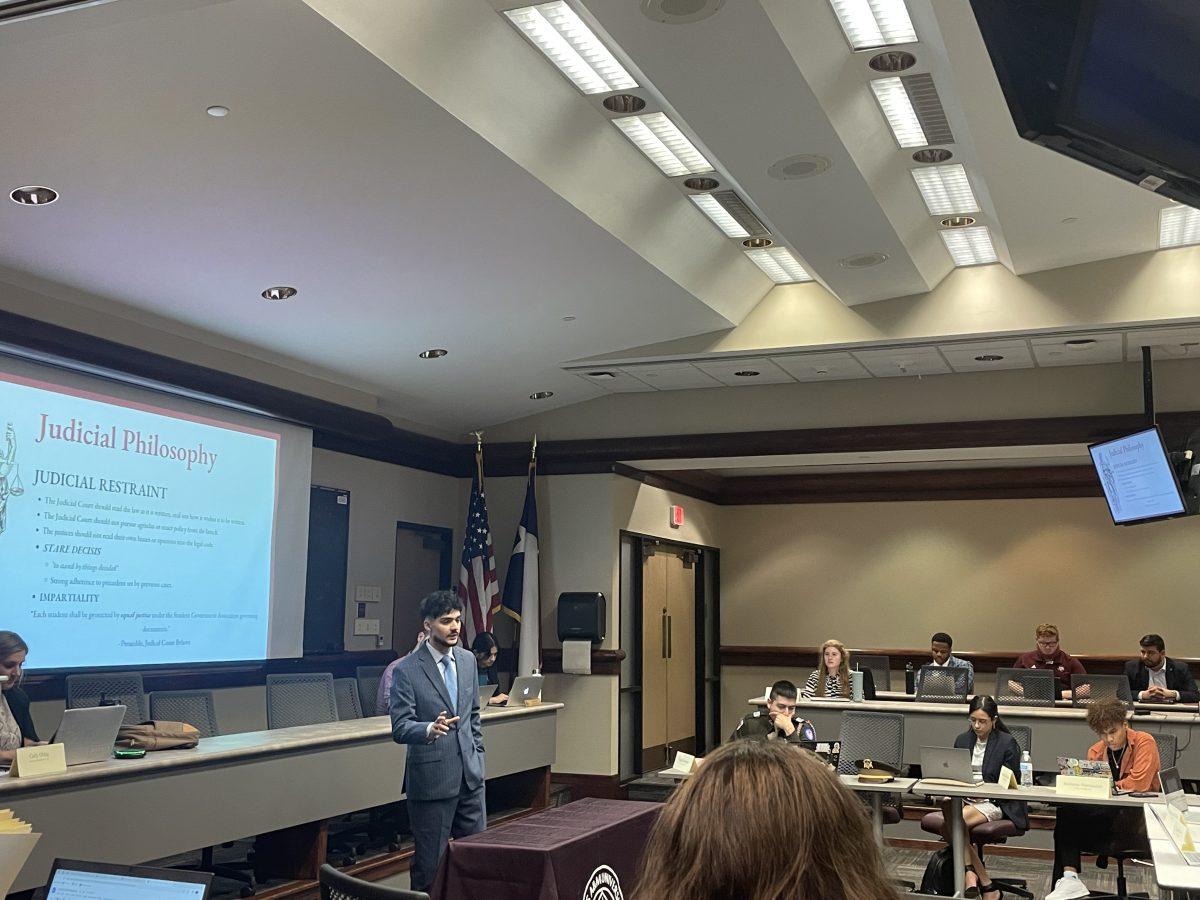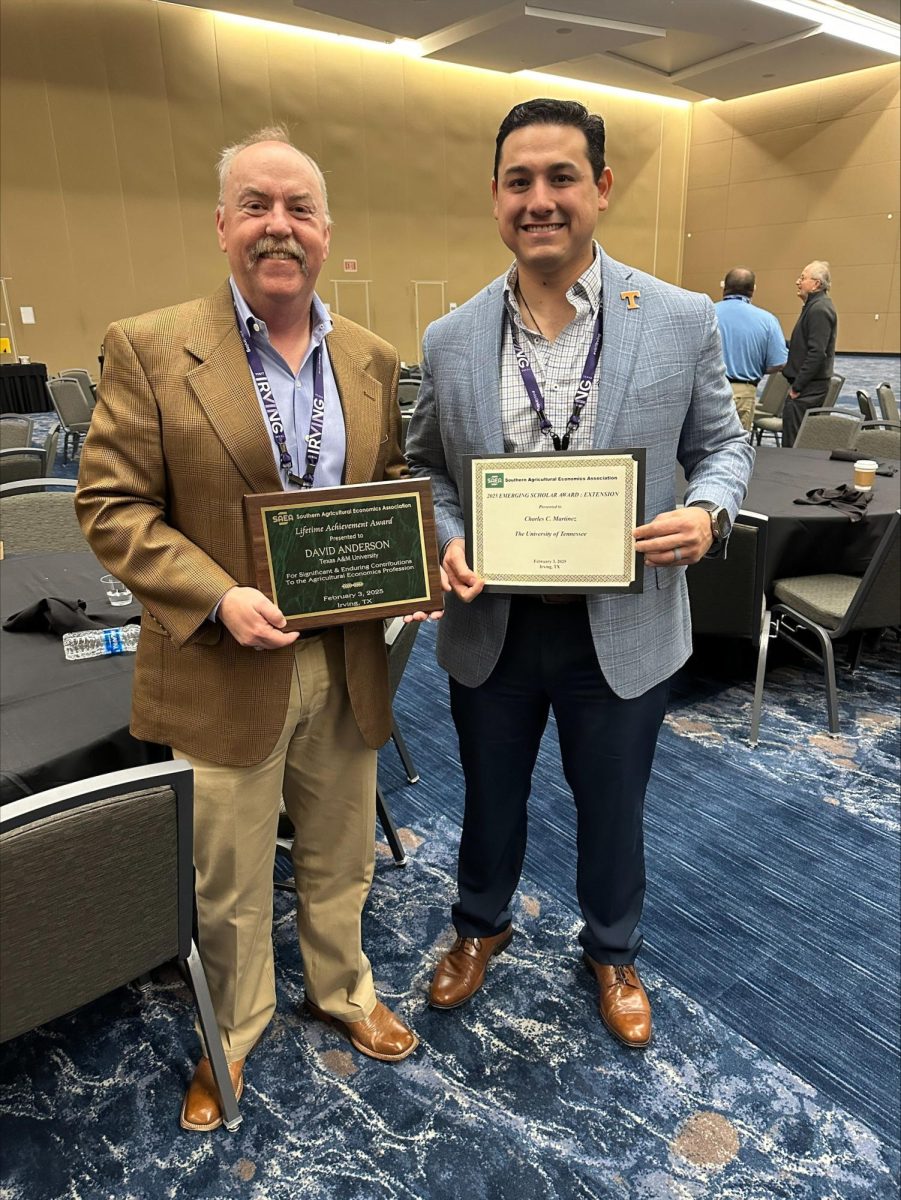The Texas A&M Student Senate passed the Supporting Student Suffrage bill as emergency legislation in response to proposed Texas legislation, HB 2390, which prohibits placing voting locations on college campuses.
The Supporting Student Suffrage bill opposes the banning of polling locations on college campuses and supports another proposed bill, SB 118, that would require polling locations on college campuses, which is especially relevant in towns like College Station.
Legislative Relations Chair Patrick Englehart encouraged his fellow senators to declare the bill as emergency legislation, which allows the Student Senate to vote on it immediately, rather than waiting until the next session for a vote.
Englehart said in the 2022 midterm elections, Brazos County officials refused to designate the Memorial Student Center, or MSC, on A&M’s campus as an early voting location, despite strong student opposition.
Many students rely on college campuses as a place to vote, and the closure of the MSC as a polling location made the College Station City Hall the only viable polling station within a five-mile radius of campus. Englehart said the change in locations made voting more difficult for students.
“College students are often first time voters and already have to navigate how to change their registration, so they may vote at college without having to travel hours to return home,” Englehart said.
This bill aroused a lot of debate as many felt strongly about the importance of accessibility to polling locations for residents of College Station.
Community Chair Jessica Williams works directly with the Bryan-College Station community, where she researches city council proceedings and advocates for the interests of A&M students.
“College students use less city resources, so [they] might as well vote in the city [they] are in,” Williams said.
While students are heavily influenced by these polling locations, many senators argued for the importance for faculty members as well.
“Faculty are College Station residents and faculty and staff are voting on campus,” Academic Affairs Chair Angelina Baltazar said. “If we want a good representation of College Station, we should vote for this bill.”
By a vote of 31-2, the Supporting Student Suffrage bill passed.
At the beginning of the meeting, the agenda stated an associate justice confirmation hearing as its first action item. Philosophy and history sophomore Diego Sepulveda Allen was the nominee and was asked questions about his judicial philosophy and past positions held.
Allen has applied once before and was trying his hand a second time, now with changes to his judicial philosophy and said he has more experience from his time in the judicial court. The main idea he presented for his nomination was fairness under the Student Government Association code, with emphasis on following judicial procedure impartially.
However, there was back-and-forth debate regarding Allen’s previous experience serving under an election committee in the past. Some members of the Rules and Regulations Committee argued it would help him understand the behind-the-scenes of the process. Other committee members argued his experience would negatively impact the court, as he may not remain impartial.
The Rules and Regulations Committee voted 2-3, not confirming Allen for the position as associate justice.
The vote was then brought to the senate, resulting in a vote of 16-20. Allen’s confirmation was denied, as a two-thirds majority was needed to be confirmed as an associate justice. Now, the Student Senate will wait for the judicial court to provide a new nominee for review.
Additionally, during the period of new business, the agenda included four pieces of legislation to discuss. The first legislation was the Senate Vacancy Process Act, meant to mitigate the vacant senate seats and make the election process more efficient. The senators proposing the bill highlighted the 15 currently vacant spots this semester, and the bill was referred to the Rules and Regulations Committee.
The next piece proposed was the Awards Alignment Act, an act to align awards programs to relevant committees for recognition. This piece was also referred to the Rules and Regulations Committee for further review.
The next student senate meeting will be on Wednesday, March 1, at 7 p.m., where senators will vote on the bills proposed during this session and discuss any new legislation.










